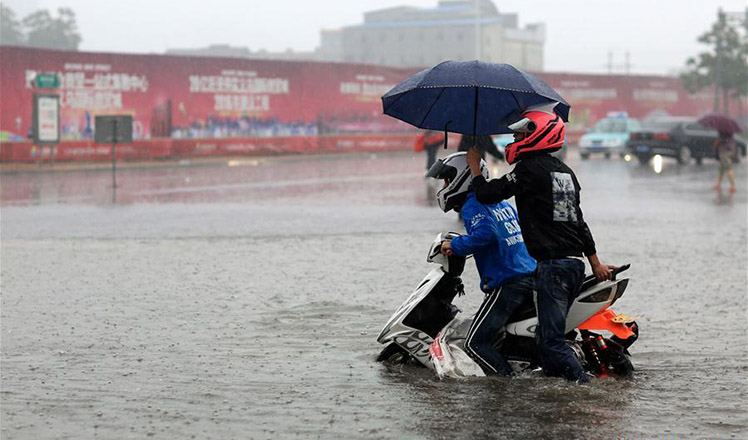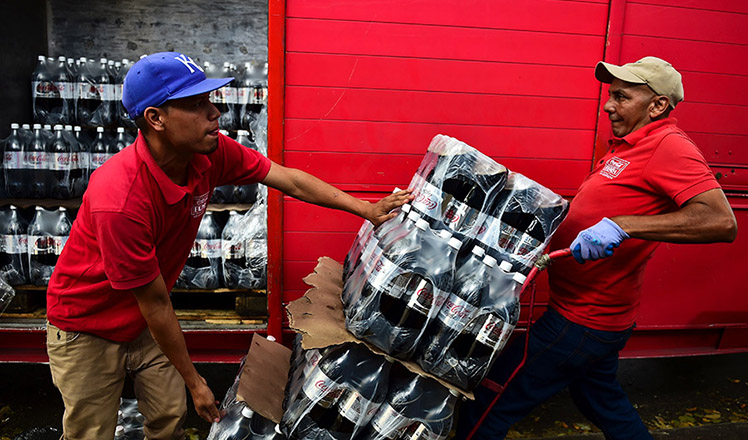Global problem requires concerted worldwide response, scientists say
Updated: 2016-07-21 07:54
By Shan Juan(China Daily)
|
||||||||
The upcoming G20 meeting, to be held in Hangzhou, the capital of Zhejiang province, in September will provide a great opportunity for the world's 20 leading economies to elevate the global response to antimicrobial resistance, including healthcare, surveillance and research, and appropriate countermeasures, according to a leading official at the World Health Organization.
"The issue now is a growing global public health problem that threatens to jeopardize healthcare around the world. It will only be contained when it is recognized as such and every country takes steps to address it," said Martin Taylor, team leader of health systems and health security at WHO's China Office, in an exclusive interview with China Daily.
Moreover medical experts say illnesses caused by resistant microbes are becoming more difficult and increasingly expensive to treat.
Not only do these microbes require more expensive second- and third-line medication, such as powerful, costly antibiotics, but the delays in effective treatment ramp up the costs of medical care, raise mortality rates and heighten the risk of complications and the spread of infections.
From 1998 to 2012, only five new antibiotics were brought to market, according to Wu Hao, director of the Department of Infectious Diseases at the You An Hospital in Beijing.
However, resistance to all classes of antibiotics has continued to emerge and spread, he said.
Huang Liuyu, director of the Institute for Disease Prevention and Control with the People's Liberation Army, echoed Wu's remarks. He noted that it takes usually eight to 10 years to develop new antibiotics, but some rapidly lose their effectiveness because bacteria can become resistant in just two or three years.
Penicillin, the first antibiotic, now fails to kill bacteria in 80 percent of infections in China, according to the nation's health authorities.
Taylor said a far-reaching response is urgently required. "We need global action to extend the life of our current antimicrobials by ensuring they are only used when necessary," he said, urging concerted moves to improve surveillance, increased investment in the research and development of new antimicrobials and improved diagnostic tools.
He also warned of the consequences of the improper use of antibiotics in the agricultural sector.
Antibiotics used to treat human diseases are also given to livestock in sub-therapeutic doses, not to treat infections, but to promote growth and prevent outbreaks of disease among animals in factory farms, according to Taylor.
"Both antibiotics and the resistant bacteria make their way into the food chain via contaminated food products and through the water supply," he warned, adding that microorganisms do not respect national boundaries and can easily cross borders.
"Resistant microorganisms can travel quickly because people are migrating and traveling," he said.
The WHO is playing a leading role in promoting action across all sectors, and the Global Action Plan on Antimicrobial Resistance was adopted by the World Health Assembly in May last year.
The action plan is based on five strategic objectives: improving awareness and understanding of antimicrobial resistance; strengthening knowledge through surveillance and research; reducing the incidence of infection; optimizing the use of antimicrobial agents; and ensuring sustainable investment to counter antimicrobial resistance.
- Endangered elephants relocated by crane in Africa
- THAAD news met by DPRK missile launches
- DPRK top leader guides ballistic rocket test-firing
- Turkey's failed coup to further consolidate Erdogan's power
- Boris Johnson says UK not abandoning leading role in Europe
- Armed man attacked passengers on a train in Germany

 Heavy rain, floods across China
Heavy rain, floods across China
 Super-sized class has 3,500 students for postgraduate exam
Super-sized class has 3,500 students for postgraduate exam
 Luoyang university gets cartoon manhole covers
Luoyang university gets cartoon manhole covers
 Top 10 largest consumer goods companies worldwide
Top 10 largest consumer goods companies worldwide
 Taiwan bus fire: Tour turns into sad tragedy
Taiwan bus fire: Tour turns into sad tragedy
 Athletes ready to shine anew in Rio Olympics
Athletes ready to shine anew in Rio Olympics
 Jet ski or water parasailing, which will you choose?
Jet ski or water parasailing, which will you choose?
 Icebreaker Xuelong arrives at North Pacific Ocean
Icebreaker Xuelong arrives at North Pacific Ocean
Most Viewed
Editor's Picks

|

|

|

|

|

|
Today's Top News
Ministry slams US-Korean THAAD deployment
Two police officers shot at protest in Dallas
Abe's blame game reveals his policies failing to get results
Ending wildlife trafficking must be policy priority in Asia
Effects of supply-side reform take time to be seen
Chinese State Councilor Yang Jiechi to meet Kerry
Chinese stocks surge on back of MSCI rumors
Liang avoids jail in shooting death
US Weekly

|

|







